
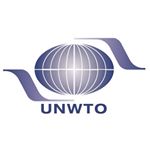
UNWTO Silk Road Task Force commits to work on joint marketing, training, infrastructure development and visa facilitation
The 6th UNWTO Silk Road Task Force Meeting held in Urmia, Islamic Republic of Iran on 22-25 April 2016, agreed to advance joint marketing, training, infrastructure development and visa facilitation. The Meeting brought together representatives from 14 countries to discuss the key priorities for the Silk Road Action Plan 2016/2017.
The 6th UNWTO Silk Road Task Force Meeting, hosted in the ancient Silk Road city of Urmia, was organized by UNWTO, the Iranian Cultural Heritage, Handicrafts and Tourism Association (ICHTO) and the West Azerbaijan Province. Over 500 public and private sector stakeholders attended the official opening of the meeting.
Opening the event, the Vice-President of the Islamic Republic of Iran and the President of ICHTO, Mr. Masoud Soltanifar, said ‘We hope to cooperate with other countries, while bridging information dissemination, commercial and trade cooperation and cultural exchanges. In doing so, we will contribute to the promotion of the modern Silk Road spirit – contributing to world peace and development.’
At the opening, Mr. Zoltán Somogyi, UNWTO Executive Director said, ‘We are at a crucial point of the Silk Road Programme as a growing number of countries are prioritising the Silk Road in their economic development strategies. There is also an increasing demand for transnational tourism routes and itineraries globally from the perspective of both public and private sectors and we must maximize this trend.’
The meeting focused on the three key pillars of the Silk Road Action Plan: i) marketing and promotion ii) destination management and capacity building and iii) travel facilitation. The Task Force agreed that, while the Silk Road presents extensive opportunities for development, success will be determined by establishing strategies and objectives that are achievable for all destinations.
The key priorities set by the Silk Road Task Force include:
- To develop a jointly shared Silk Road Mobile Application with relevant travel information of all participating Silk Road countries, including maps, images and relevant information on Silk Road heritage.
- To enhance the joint management of Silk Road heritage corridors through the unification of heritage guide and heritage protection standards, and the development of sustainable tourism products.
- To enhance the coordination among Silk Road countries to improve and facilitate travel across borders.
During the Meeting, Iran, represented by the Tourism Deputy of ICHTO, Mr. Morteza Rahmani Movahed, put forward two main proposals: i) to establish a Silk Road Heritage Guide Training Centre aimed at improving and unifying heritage guide standards across the Silk Road. Hosted by ICHTO, the centre would be developed in collaboration with UNWTO, UNESCO and the World Federation of Tourism Guides Association (WFTGA); and ii) to develop a new Silk Road Heritage Corridor connecting Iran with Iraq in order to further enrich and diversify the tourism offer of the Silk Road countries.
The 6th UNWTO Silk Road Task Force Meeting was attended by officials from UNESCO and the Iran Federation of Tourist Guide Associations, as well as representatives from the Silk Road Member States Bulgaria, Croatia, Georgia, Indonesia, Iran, Iraq, Kazakhstan, Mongolia, Pakistan, Russia, Spain, Turkey, Ukraine and Uzbekistan. A number of UNWTO Affiliate Members joined the Meeting, including the International Centre of Wine and Gastronomy and the Spanish Institute for Quality Tourism. Turkish Airlines supported the event and shared its actions in promoting route development and connectivity across the Silk Road.
Additional information:
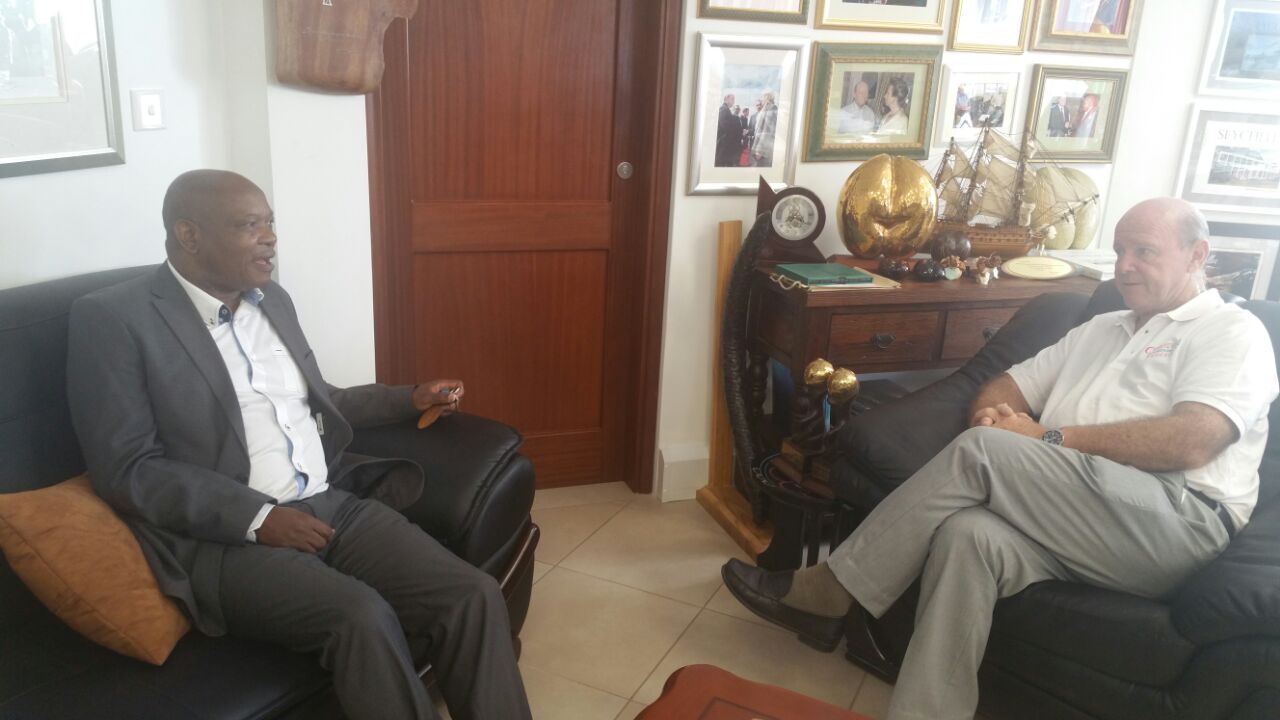
Seychelles discuss tourism on the sidelines of the 2016 United Nations Gathering of Culture Event in Seychelles
Zimbabwe was represented at the 6th Edition of the Carnaval International de Victoria by Officials from their Tourism Authority. Karikoga Kaseke, the Chief Executive of the Zimbabwe Tourism Authority accompanied by Sugar Chagonda, the Head of Corporate Affairs were in Seychelles to show support for the United Nations Gathering of Culture Event where the best from the World of Carnivals walk side by side with Cultural Troupes from the Community of Nations.
This year 23 International Delegations are in Seychelles for the carnival that is now referred to by the International Press as the United Nations Gathering of Culture Event and they were parading not only in front of well over half the population of Seychelles but also in the presence of of 126 International Press Houses. This potential for visibility continues to bring countries looking to consolidate their tourism industry to participate at the Seychelles event.
On the sidelines of the Carnival event, Karikoga Kasega, the Chief Executive of the Zimbabwe Tourism Authority accompanied by Sugar Chagonda, the Head of Corporate Affairs met Minister Alain St.Ange, the Seychelles Minister responsible for Tourism and Culture at the Ministry of Tourism and Culture Offices at ESPACE Building in Victoria to discuss cooperation between the two countries as well as tourism, Africa and the UNWTO.
Zimbabwe was supporting the Seychelles carnival since its first edition six years ago when the Vice President of Zimbabwe along with Tourism
Minister Walter Mzembi led a large cultural delegation to the carnival. During the meeting it was agreed Minister Mzembi of Zimbabwe and Minister St.Ange of the Seychelles would continue to pursue avenues for cooperation possibly at the INDABA Tourism Trade Fair in Durban in South Africa or at a meeting in Seychelles before a planned Tourism Ministers meeting at the AU (African Union) in Addis Ababa in Ethiopia.
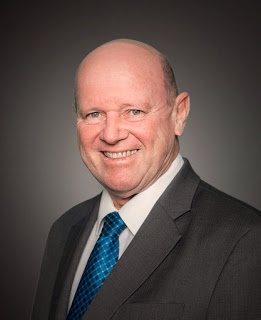
The next UNWTO Secretary General: A run behind the scene is on the way
Recent reports mentioned among others His Excellency Alain St.Ange, minister of tourism for the Republic of the Seychelles as a possible candidate to succeed Dr Taleb Rifai as the new UNWTO secretary General in 2017
Last night at a press conference in the capital of the Seychelles, Victoria, the minister was asked by eTN if he was a candidate for the post of the next secretary general of the United Nations World Tourism Organization (UNWTO)
When asked Minister St. Ange conceded that many countries and many individuals had approached him and expressed their confidence in him that he should be nominated as a potential successor when a new Secretary General is elected at the Beijing UNWTO General Assembly next year.
Minister St. Ange however made it plain that his first duty was to his country and the Seychelles tourism industry. His role is to safeguard the gains of past years and build on the foundations of success for yet even better results in the future.
He said: “It took the Seychelles 40 years to reach 130.000 arrivals and in the space of the past seven years we more than doubled that figure.
It shows we are doing something right. He mentioned the industry is going through challenging times. When one market goes soft to due unforseen situations including terror, we are now able to accelerate growth from other market places. This development must be safeguarded. I have a duty to my country and as a member of the cabinet of ministers my first and foremost obligation is to the Seychelles.”
Notably he did however not expressly rule out a candidacy at a later time.
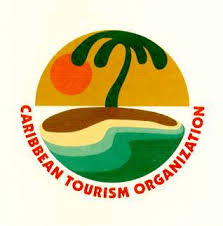
Caribbean Tourism Organization Earth Day Message 2016
Today the Caribbean Tourism Organization (CTO) joins the world in recognizing and celebrating Earth Day.
We have been blessed with a beautiful environment, in which to live, work and invest. We welcome over 25 million visitors, who, for generations, have been coming to our region for rest, relaxation, respite and rejuvenation.
We have also been fortunate to have leaders in the tourism sector who remain conscious of the need to balance the pursuit of economic prosperity with the preservation and conservation of our historic structures, waters, forest areas, caves, mountains and wildlife. The trend toward more mixed-use construction in the tourism and travel sector is much welcomed; however, the level of awareness on the impact of our actions as a sector on the environment needs to be lifted significantly.
We at the CTO have been playing our part to ensure that our partners are more sensitive to the environmental issues in tourism, as well as the links between sustainability and our long-term success as an industry. Through our sustainable tourism product specialist, we have been able to institute and support a number of major initiatives.
The Caribbean Hotel Energy Efficiency Action project (CHENACT), a collaborative project with the Inter-American Development Bank (IDB), the CTO and the Caribbean Hotel & Tourism Association (CHTA), has the potential to save participating hotels hundreds of thousands of dollars in energy costs. Through sustainable destination management the Sustainable Destinations Alliance of the Americas, launched in March 2014, is harnessing the power of travel and tourism as a force for good in the Americas.
Our CTO Sustainable Tourism Conference, as well as the St. Eustatius Sustainable Tourism Conference, and the recently held Grenada CREST SYMPOSIUM for Innovators in Coastal Tourism, have served to highlight key issues affecting tourism sustainability, while the Caribbean Excellence in Sustainable Tourism Awards, has brought recognition to many individual tourism-related enterprises in member countries that go the extra mile to incorporate green practices in their value proposition with exemplary success.
We continue to use our annual youth symposium and student colloquium to challenge youth to think of ways to preserve the industry for future generations. These and other investments in education and public awareness are also key pillars in our sustainable tourism strategy, to ensure we have a constant stream of thought leaders to champion this important cause.
Another reality which keeps our attention is the fact that climate change and environmental degradation are often the result of the combined impact of millions of small, irresponsible acts.
We join the rest of the environmentally-conscious world in lobbying for a new international climate change agreement backed by supportive and where necessary, punitive national initiatives that encourage more responsible environmentally friendly behavior. Each individual, household, business and nation has to do its part to take care of our environment, now and always. We must always remember that there is a linkage between our ecosystem and its appeal as a tourism product, and the quality of life we enjoy in the Caribbean. The message to all tourism players in our beautiful region is therefore clear: To whom much is given, much is expected.
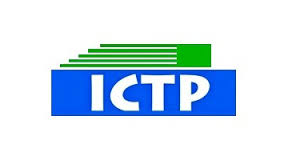
Some Thoughts from ICTP for Earth Day 2016
Professor Geoffrey Lipman President ICTP
The first Earth Day back in 1970 had a famous slogan “We have caught sight of the Enemy and he is Us”. 4 decades later we finally hav a global 2030 Sustainability Plan (the SDG’s) and 2050 Climate Resilience framework in the making. Make no mistake, this is the start of an incredibly massive measuring, regulating and market making process that stretches into every aspect of human activity.
But in all of the 17 SDG’s with 169 Targets and 304 Indicators (already) only 1 is existential repeat existential – Climate Change. If we don’t fix that our grandchildren get battered by weather and planetary upheavals that are so savage, unpredictable and continuous that nothing else really matters. The IPCC scientists say that we need to get to a stabilized temperature of no more than 20 C by 2050 but the smart money says 1.50.
This is not yet on the global action radar screen and the Travel & Tourism world is behind the sustainability leadership curve – despite the fact that our core products are so exposed and vulnerable to extreme weather, natural disasters and resource debilitation. These are the very patterns that Climate Change is increasingly delivering, with much of the pain focused on prime tourism locations.
ICTP intends to play its part in the industry response by refocusing it’s Green Growth and Quality activity on Climate Resilience. Working with the SUN Program www.thesunprogram.com, we will create national chapters of interested stakeholders to help deliver model climate resilience programs at the local level. Green Growth will remain at the heart of our activity but the vector will be through Travel & Tourism impacts, in a climate resilient way.
Our main points of focus will be on Full balance sheet numbers – linking Environment and Satellite Tourism Accounting, Local level transformation – bringing global best practice into play and a No carbon 2050 Aviation Moon-shot – to ensure that air transport, our core supply system has adequate supplies of biofuels to reduce its fossil fuel demand to zero.
Our message is simply Travel & Tourism is essential – Climate Change is existential.
ICTP (International Coalition of Tourism Partners) April 22nd 2016
www.ictp.travel

African tourism ministers convene in Côte d’Ivoire
Over three days (19-21 April) high-level tourism representatives from African countries, including 18 tourism ministers1, are convening in Abidjan, Côte d’Ivoire, to discuss the challenges of the sector and the priorities for the programme of work of UNWTO in the African continent. The event is held in parallel with the Sustainable Tourism Conference of the 10 YFP, focused on ‘Accelerating the Shift towards Sustainable Consumption and Production Patterns’.
Tourism and ethics, tourism and security, and the International Year of Sustainable Tourism for Development to be celebrated in 2017 are some of the topics in the agenda of the meeting. The events taking place in Côte d’Ivoire show clear support to the country following the tragic events that took place in Grand-Bassam last March and recognition by the Government of Cote d’Ivoire of tourism’s role in development.
“Côte d’Ivoire is one of the most evident examples of the great potential of African tourism; it holds impressive natural assets and unique cultural diversity and traditions. Continuing to foster tourism in this part of the world can really make a difference, not only for society as a whole but for the perception of the African continent in the world,” said UNWTO Secretary-General Taleb Rifai, opening the event.
During the occasion, the UNWTO Secretary-General and attending delegations visited Grand-Bassam to pay tribute to the victims of the attack of March 13, 2016.
“Thank you for coming to Grand-Bassam and paying respect to the victims. We thank you for maintaining the meeting, which is very important for us,” said President of Côte d’Ivoire Alassane Ouattara.
The importance of tourism to Cote d’Ivoire has been reflected in the acceptance by President Ouattara of the UNWTO/WTTC Open Letter on Travel and Tourism, geared to raise awareness and support of tourism at the highest political level.
Sustainability in the agenda of tourism in Africa
Parallel to the Regional Commission, UNWTO organized the Sustainable Tourism Conference of the 10-Year Framework of Programmes on Sustainable Consumption and Production Patterns.
The event focused on ‘Accelerating the Shift towards Sustainable Consumption and Production Patterns’ and discussed the importance of sustainability in the agenda of tourism in Africa, as well as in enhancing tourism investment and financing and collaboration among stakeholders to improve the tourism sector’s performance.
Through a combination of plenary sessions, interactive panels and roundtable discussions, examples of good practices from related projects and activities were presented and shared.
The UNWTO Regional Commission for Africa coincided with the holding of SITA – Salon International du Tourisme d´Abidjan – providing attendees with the opportunity to also participate in the fair that brings together local exhibitors as well as those from the neighbouring countries.
The 10YFP was adopted at the Rio+20 Conference as a framework for action on Sustainable Consumption and Production as a cornerstone of sustainable development. The well-being of humanity, the environment and the economy ultimately depend upon the responsible management of the planet’s natural resources. These challenges are mounting as the world population is forecast to reach 9 billion by 2050, with 1 billion people to be lifted out of absolute poverty and 1-3 billion additional middle-class consumers joining the global economy by 2030. The most promising strategy for ensuring future prosperity lies in decoupling economic growth from the rising rates of natural resource use and the environmental impacts of both the consumption and production stages of product life cycles. Sustainable Consumption and Production (SCP) is about “the use of services and related products that respond to basic needs and bring a better quality of life while minimizing the use of natural resources and toxic materials, as well as the emissions of waste and pollutants over the life cycle of the service or product, so as not to jeopardize the needs of further generations”. SCP is about doing more and better with less. SCP is about increasing resource efficiency and promoting sustainable lifestyles. It offers important contributions for poverty alleviation and the transition towards low-carbon and green economies. It requires building cooperation among different stakeholders as well as across sectors in all countries.
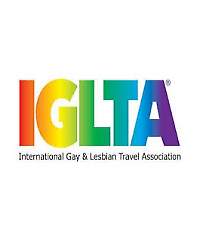
Is UNWTO and WTTC turning slightly pink in supporting LGBT travel?
LGBT including marriage equality, is a hot issue in many countries and a great opportunity for the travel and tourism business.
UNWTO and WTTC were able to stay out of this global discussion on how to categorize and include or exclude Gay, Lesbian, Transgender travelers into their policies and concept. As eTN reported today WTTC boss David Scowsill is caught between a rock and a hard place. This may very well also apply to the UNWTO Secretary General Taleb Rifai.
No doubt, the LGBT community contributes a significant amount to our industry. Leaders like David Scowsill knows this. After all WTTC is an organization claiming to represent the global private travel and tourism industry. According to WTTC, it is the authority on World Travel & Tourism. WTTC works in tandem with UNWTO representing governments as a United Nations agency.
Mr. Scowsill today delivered a speech at the IGLTA Annual Global Convention in Cape Town, South Africa. IGLTA stands for: International Gay, Lesbian Travel Association. UNWTO was represented by Yolanda Perdomo. She observed the event.
It’s significant to have this conference in South Africa. South Africa is the only country in Africa allowing same sex marriages. South Africa is guaranteeing equal rights to their LGBT community.
In most other parts of the continent criminal penalties punish same sex activities and discrimination against LGBT travelers and citizens is openly accepted and in some cases encouraged.
The LGBT travel community had big hopes to get a push of support from WTTC today. Delegates traveled from all corners of the world to listen to David Scowsill in Capetown and welcomed him with open arms.
It is of course significant for the WTTC president to attend such an event. No press releases were issued by WTTC, so it was a quiet exercise, but David showed up.
The audience in Cape Town was anxiously waiting to hear how LGBT travel is seen by WTTC and UNWTO. IGLTA delegates wanted to learn about upcoming and current policies in regards to equality.
Instead this audience listened to a speech mentioning global challenges including terrorism, but in no way was LGBT the focus for WTTC at this LGBT conference.
The audience was waiting to hear on how WTTC and UNWTO can help to stop open discrimination and fear for members of the LGBT community to participate and enjoy global travel and tourism activities. Unfortunately this was not addressed by Mr. Scowsill.
LGBT travelers contribute to the industry an enormous potential. The WTTC boss clearly separated himself from the audience and talked about “our issues” compared to “your issues”.
Annebeth Wijtenburg, Communications Manager of WTTC confirmed this policy of non inclusiveness. She told eTurboNews today “We are currently looking at adopting a position on LGTB. As part of our Freedom to Travel strategy we encourage travel facilitation for all travelers, however we have not spoken out about LGTB specifically and therefore would be unable to provide you with a comment.”
A feedback from a delegate attending the event said : “Very nice generic speech. A few mentions of LGBT but nothing of specific WTTC action.”
WTTC just concluded their annual summit in Dallas, Texas, United States. WTTC did in details discussed women equality, however LGBT equality in tourism was not on the agenda.
Perhaps one only needs to follow the money trail to understand why.
Some WTTC members are highly supportive to include and not exclude LGBT travelers. It includes Bill Marriott, CEO of Marriott Hotels for example. He was a speaker at the WTTC event in Dallas and his company is ready to take over Starwood Hotels and Resorts and form the largest hospitality company in the world.
WTTC members include airlines like Etihad, the national carrier of the United Arab Emirates. Attending the WTTC General assembly was the CEO of Etihad Airways and also the head of the Saudi Supreme commission. He was seen sitting next to David Scowsill and actively attended panel discussions in Dallas. Also attending was the minister of tourism from Zimbabwe who has ambition to become the next UNWTO Secretary General, and the minister of tourism from Uganda- all known not to support LGBT.
As a matter of fact LGBT behavior is illegal in many UNWTO member countries. Many paying WTTC members are located in countries where same sex activities are punishable by prison.
On the other hand UNWTO member, the minister from South Africa had delivered a heart warming speech of support today at the IGLTA congress opening in Cape Town.
One has to follow the money to understand the difficult position for UNWTO and WTTC to support the LGBT community in their efforts. It’s a lot easier and less political to support women equality and call it gender equality.
It appears WTTC and UNWTO leadership is sitting in between a rock and a hard place when it comes to support or not support, and when it comes to include or not include LGBT. However IGLTA is currently an affiliated member of the UNWTO.
Capetown is a baby step forward for both organization (UNWTO and WTTC) .
LGBT inclusion can no longer be ignored as a niche. Even though the UNWTO Secretary General never addressed equality for gays, lesbian, transgender travelers in details or proposed policies, today’s event is a positive signal.
In an email to eTurboNews, UNWTO claimed to be a strong supporter of “this area”
The statement referred to this report: http://www.e-unwto.org/doi/pdf/10.18111/9789284414581
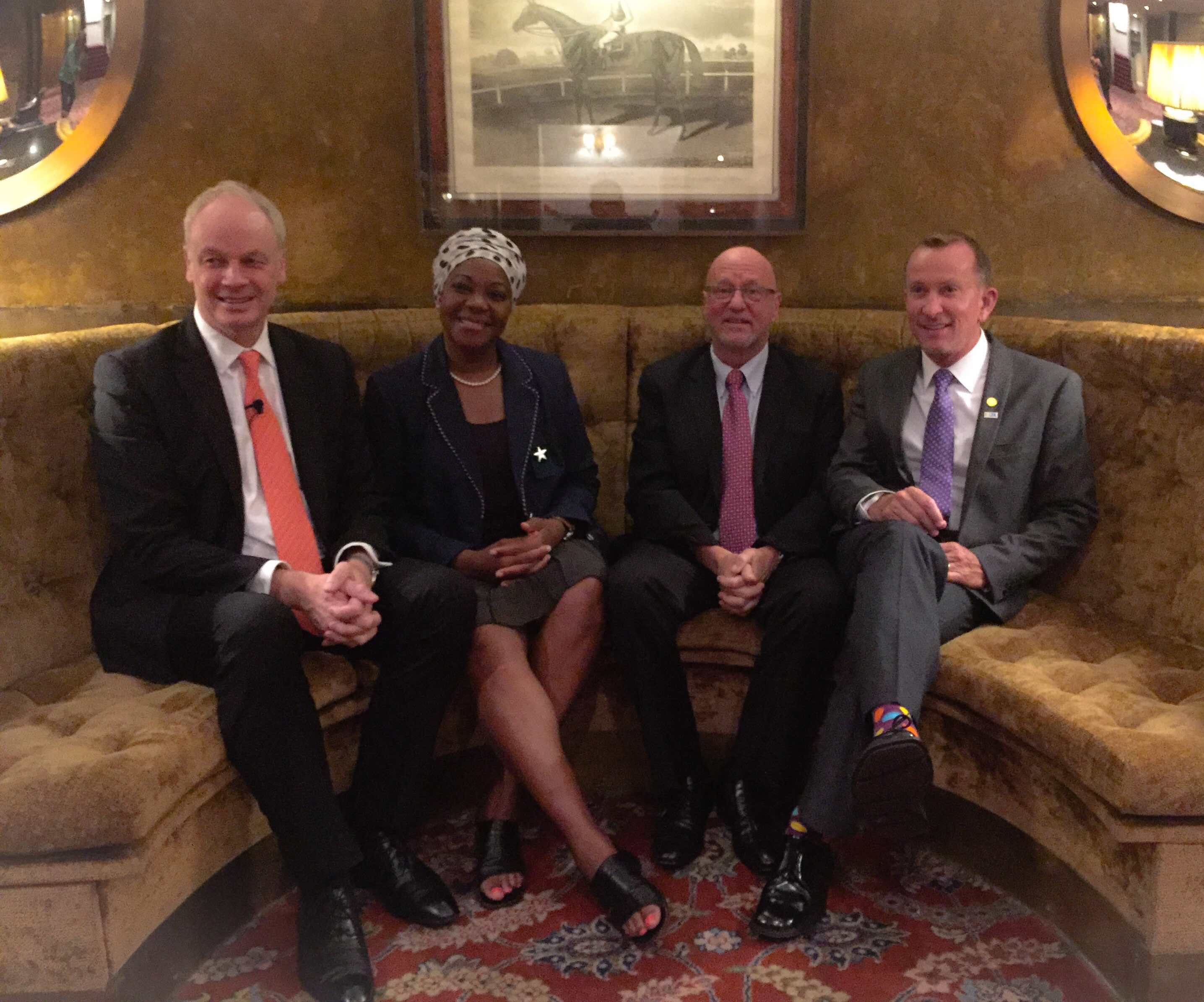
Transcript: LGBT & WTTC David Scowsill speaks at the IGLTA conference
David Scowsill, president & CEO of the World Travel and Tourism Council today attended and spoke at the International Gay Lesbian Travel Association Annual Conference in Capetown South Africa.
He said:
TRANSCRIPT Good morning everyone, thanks once again for giving me the honor of addressing the IGLTA.
People often ask me how WTTC can help the LGBT sector. And in this regard, your issues are the same as our issues – principally the ability to travel freely and to enjoy the holiday of your choice, whenever you like and with whoever you choose. We call this Freedom to Travel.
It was only last week that we held our big annual event, the WTTC Global Summit in Dallas, Texas. You were ably represented by Richard Gray, appointed yesterday as your Vice Chairman.
We were holding our annual Summit in the United States for the first since we were in Las Vegas in 2011. That Summit had proved instrumental in helping to convince the Obama administration that it needed to adopt a different attitude towards its Travel & Tourism sector. To see it as an economic generator rather than a security threat.
But familiar issues have re-emerged. The twin threats of global terrorism and an international refugee crisis are creating a very real threat to our desire for Freedom to Travel.
We understand that governments are grappling with the question of how we keep our borders safe and open to business travelers and tourists.
But it is critical that they do not over-react. We have made huge strides in the last few years, right across the world, to encourage countries to adopt electronic visas and visa waiver programs.
The declaration from our Global Summit in Dallas is that we cannot give up everything which the sector has worked so hard to achieve. We must work ever more closely with governments.
I will return to this subject in a few minutes, but first I would like to talk about the scale of the Travel & Tourism sector globally. For although we are one of the world’s biggest employers and creators of economic growth, we don’t always act like it.
Globally we generate nearly 10% of GDP, $800 billion of investment and nearly 6% of the world’s export dollars.
This year, the sector supported 284 million jobs, which equates to about 1 in 11 jobs on the planet.
More than one billion people cross international borders each year. They see friends, do business, take holidays; they live, work and experience other cultures and countries.
And this sector grows at a rate faster than global GDP, and most other industries such as automotive and financial services. Within 10 years we will contribute 11% of global GDP, and one in 10 of all jobs.
By 2035 over two billion people will cross international borders each year.
Ladies and gentlemen, the sector which we represent is critical for economic growth. That is why governments should focus on us, as they deal with a falling oil price, a struggling economy, or worryingly high unemployment.
But apart from the economics argument, there is a more human side to what we do.
The 284 million jobs supported by our sector represents employment. This could be a family lifted out of poverty, a man or woman engaged in the workforce for the first time, an employment opportunity in a beautiful but remote setting. We help to promote self-respect, self-confidence and, importantly, self-sufficiency.
Across all elements of society, in every country, Travel & Tourism remains a force for good in the world.
So all of us here at IGLTA should be proud and humbled to say that we play our own distinctive part in one of the world’s great sectors – a driver of economic growth and job creation. A driver of social inclusion and personal mobility.
It is the role of WTTC to tell these two stories about the social and economic impact. We advocate on behalf of the industry by voicing our collective needs to government. Together with Taleb Rifai at UNWTO, we have visited with 82 heads of state in the last four years.
But particularly, we use the strength of our members, to tell the world about the huge economic and social benefits of the Travel & Tourism sector.
From airports to airlines, car hire to cruise lines, hotels to tour operators, travel agencies to technology suppliers, WTTC’s Members represent every major sector in every part of the world. Our Members are the Chairs, Presidents and CEOs of these organisations…. When we speak…. we speak with the authority bestowed upon us by over 140 of the most influential people in our sector.
When we survey the wider political and economic landscape, there are three mega themes which will continue to dominate the sector, globally and regionally, for many years to come.
We see the need to work with governments to ensure that their policies create business environments which are conducive to the growth of the sector.
This means creating tax regimes which allows the private sector to be competitive. Tourism is taxed more highly than many other sectors in different parts of the world, and WTTC research proves the damaging effect this can have on the growth of our sector.
This means planning and building infrastructure, that will be capable of absorbing the incredible growth in travel that we will see over the next 25-30 years.
This means training and recruiting the right people with the right skills to meet the growth of the sector.
Everyone in this room and beyond to every corner of our sector has a huge responsibility for safeguarding the environment, and ensuring that the growth of our sector is managed responsibly and sustainably.
Our sector is growing by over 4% a year which means by 2035 the number of international travellers will have doubled to 2 billion, while billions more travel domestically.
This growth in Travel & Tourism will bring about enormous social and economic development across the world. But we have a serious responsibility to ensure that we decouple the growth of the sector from its impact on our environment, to ensure that tourism can continue to contribute to socio-economic inclusiveness and development in the long term.
This campaign calls for improved visa processes in order to allow tourists to cross international borders as efficiently as possible, while still respecting the rights of sovereign states to manage security and immigration concerns.
It is this very freedom which is most under threat in our sector.
The last few months have seen an unprecedented number of terrorist attacks, many aimed deliberately at tourists, which brings the understandable call to make our borders stronger.
But given our vast economic and social importance, we return to the question I posed earlier: “how can we keep our borders safe, while keeping those same borders open to travellers and tourists?”
This is a global problem with a global solution which will involve an increased level of data sharing, technological advancements in the form of biometrics. It will require unprecedented international cooperation.
Governments are looking to us to help them solve the problem. So it is up to us to lead the debate – to be part of the solution.
Ladies and Gentlemen: The theme of our Global Summit in Dallas was Travel Beyond Boundaries.
When I look around the world I see incredible opportunities for social and economic advancement.
I see a sector that is growing at a higher rate than world GDP. One that is creating jobs. And one that is committed to the stewardship of the world’s natural resources.
Yet I also see that the boundaries which we are trying to remove, become the barriers that others are trying to build.
So it is our role as leaders of Travel & Tourism organisations to champion the positives and confront the problems.
It’s about leadership. And that leadership starts here.
Thank you.
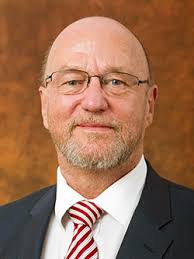
Transcript: SA Tourism Minister Derek Hanekom at the IGLTA Annual Global Convention
The Tourism minister from South Africa Derek Hanekom today addressed the IGLTA Annual Global conference in Capetwon on his stand on Gay, Lesbian, Bisexual and Transgender travel.
TRANSCRIPT: It is a great honour for me to welcome you to the first International Gay and Lesbian Travel Association Convention in Africa (IGLTA). We are extremely proud that you have chosen South Africa for this ground-breaking event.
Welcome to the making of the South African success story. Many of the early chapters of this story are completed, some are still being written, and people like yourselves, who come here from all over the world, are helping us write future chapters about the success of tourism in our country.
I really hope you have built in time to enjoy some of our amazing attractions and offerings: from the best of leisure and adventure, to the stories behind our culture and heritage, to our beautiful landscapes and our warm and wonderful people.
When you visit our iconic sites like Robben Island, you will understand how far we have travelled on our journey to success in the past two decades, how much we have learnt from our oppressive past, and how much we value our freedom and our human rights – rights which many of you here have had to fight long battles to secure, and quite possibly have not yet secured.
This convention will help brand South Africa as a country that welcomes LGBT travellers. The tourism trade network, and travellers, will appreciate all that we have to offer, especially our wildlife, cultural and gastronomic experiences. I am sure that you will also take the bigger story of South Africa, our achievements and advancements beyond tourism, to the wider world when you return home.
Many of you may know that when South Africa first became a democratic state, we were a society perched on the brink of catastrophe. More than three hundred years of repression preceded those momentous days which led to the unbanning of political organisations; the release of political prisoners and the re-shaping of what was an entirely repressive society, into one which cared for its people – one which recognised the dignity of each and every human being, no matter what their race, ethnicity, or standing in society, marital status, disability, gender or sexual orientation might be.
It was a long road to a democratic, caring society. And the change could not happen overnight. It could not, because that is not how human beings work. Change comes slowly. As the English poet WB Yeats once said “peace comes dropping slow”. To change from systematic violence and exploitation to a land where every citizen would be valued and cared for; to change from a land with a racially defined privileged few, to one where the people would share the wealth and opportunity of the country – this could not be anything other than a slow process. When we look back at the 22 years since we achieved our freedom, we have made huge advances, but the journey towards a non-racial, non-sexist society, free of stereotype and prejudice has only really just started.
At that exciting time of the transition from Apartheid to democracy, one of the great icons of our liberation struggle, Archbishop Desmond Tutu, coined the phrase “Rainbow Nation”. It was poetry, and just the right medicine for our divided nation. What he meant by that was that the beauty and wonder of the rainbow lies in nothing other than its many different colours. So he used it as a metaphor for our country. Many colours, but one nation. It worked for us and played a very important part in making people recognise the beauty of our racial and cultural diversity.
As time progressed, we began the real work of addressing inequalities and confronting persistent racism, sexism, homophobia and other forms of prejudice, sometimes in ugly ways. Student protests of the past year have brought all of this into very sharp relief. Much of what was previously just accepted as part of our national life, has been brought into question, analysed and sometimes seriously challenged.
Perhaps we are now better described as a “Kaleidoscope Nation” – where things are constantly changing and shifting, and sometimes even colliding. But the beauty is all still there. The different colours are still wondrous. The shape and form of our nation shifts continuously, but it is up to us to define the dream, and to shape it.
I have no doubt that our shared dream is of a world where you can love who you choose to love, without fear or embarrassment; where the colour of your skin does not matter; where you can worship in your way, or not worship, if that is your choice. A world where our sameness is more important than our differentness – where you can be you and I can be me and we care for each other.
We became the first country in the world to include a sexual orientation protection clause in our Constitution to ensure the rights of all people. Consequently, LGBT people took pride of place as full and equal members of our society. It filled many of us with immense pride, but it was a hard battle and there was considerable opposition to it from some quarters.
These rights are now firmly included in our Constitution, because they belong there and because it is right for them to be there. We recognise that we have not yet reached our destination. We are still on the journey and we still have a very long way to go.
So, as much as I would like to, I cannot promise you that wherever you go in South Africa, as LGBT people, that you will be accepted by everyone. What I can promise you is that you will experience a warmth and a depth of human belonging that you are unlikely to find anywhere else on the planet. I can’t promise you that you won’t experience prejudice, or racism, or sexism or homophobia. But what I can promise you is that you will be treated respectfully as a fellow traveller on this, our human journey.
What I can say without any shadow of a doubt is that, as a country, we need you and want you here. Not because of who we are, but because of who you are. Because of the struggles you have faced. Because of the brave (or even the ordinary) lives that you lead. We need you because you bring experience and challenge into our lives – and we have never been afraid of either. We need you because, in many instances, you bring a new way of looking at things – a new and exciting way of living which has always been part of our South African life, but frequently ignored, or disparaged, or violently rejected. We want you here to be a light to the millions of LGBT people in our country, so that wherever they are, they might know that they are not alone – that they are quite normal and that they should live their lives unafraid. For that is the kind of country we are trying to build.
We have a concept here, which is part of the reason why we did not destroy each other. It is a concept called “Ubuntu” and it is embedded in the soil and it lives in the heart of every South African. It is this: we are who we are, because of others. It is an affirmation that I am a person, because of other persons. I can promise you that you will experience it!
And that is the reason why we included that clause in our Constitution. Because we cannot be whole, if another person is excluded. It is a wonderful thing indeed.
We are fortunate to have the most amazing and unique World Heritage Sites in our country. Here in the Western Cape, you can enjoy the glory of the Cape Floral protected areas, which boasts the greatest floral diversity on the planet. Robben Island stands as testimony to our troubled and divided past – but also as a beacon of hope, courage and resilience – paving the way to democracy in 1994.
We go back to the beginning of time, when a meteor hit the earth at Vredefort and brought about some of the most important climate changes the world has known, until now. We have the iSimangaliso Wetland Park and the majesty of the Maloti-Drakensberg Park, in KwaZulu-Natal; we have the Richtersveld Cultural and botanical landscape in the Northern Cape. And perhaps, most importantly, the place where the umbilical cord of our collective ancestors lies buried, with the astonishing Hominid fossil finds of the Cradle of Humankind World Heritage Site in Gauteng.
It is because of this, our common humanity, that we can open our arms to you and welcome you to our shores. For you are at home! This is the place we all come from. Whether you are Lesbian, or Gay, or Bisexual, black or white or any shade of colour, this incredible continent of Africa is your home. This is where we all come from, whatever journey we have travelled and wherever we find ourselves today.
This continent is our collective home. Let us celebrate our belonging to the family of humankind, and let us rejoice that I am who I am through you. And you are who you are, because of others. Let us celebrate this wonderful thing called “Ubuntu”.
And so, on behalf of the people of South Africa, I welcome you. I cherish you. I value you. I look for the things you can teach me about being human. With you, I long for the day when we are all one, whatever our race, or gender, or sexual orientation.
Let us walk the next steps together on this wonderful and exciting journey.
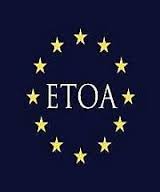
European commission proposes suspension of Schengen visa wavers for US and Canadian visitors
ETOA issued this informative in regards to the attempt by the EU to require tourist and business Visas for Americans and Canadians:
WorldTourismWire reached out to German tourism officials in New York, but they do not yet want to comment.
Off the record comments by several EU tourism boards voiced concerns.
The European Commission today adopted a political Communication on the state of play and way forward as regards the situation of non-reciprocity with certain third countries in the area of visa policy. As the US requires visas from citizens of Bulgaria, Croatia, Cyprus, Poland and Romania, the Commission is obliged to pursue a reciprocal regime on US citizens entering Europe. As of the 12th of April, it has duly asked the Council of Ministers and the European Parliament to consider suspending the Schengen visa waivers for visitors from the US, as well as Canada.
This has occurred almost automatically. The Commission has to regard the rights of EU citizens as equal, and the selection of some member states for visa requirements is regarded as anathema. So 24 months ago it issued a formal notice to the US State department asking for a reconsideration of their position with regards to the five member states, and that notice period has now expired, so they had to forward the issue onto the Council and Parliament.
This matter comes at a moment when European cohesion – and its borderless travel zone – is under some stress. Austria has just introduced a “border management plan” at the Brenner pass, and spot checks are occurring at or near frontiers throughout Europe.
“Whilst we have every sympathy with the Commission, they are victims of their own process. It is important that the European economy does not become a victim too. The business of accommodating US and Canadian visitors is an enormously important industry for Europe. We effectively sell them services worth approximately €50 billion: it is an export industry on the same level as the automotive sector. Millions of jobs are dependent on it.
Nothing on this scale has been threatened before, so it is difficult to make estimates. But when a visa regime is imposed we would expect leisure travel (which, including visiting friends and relatives) makes up over 80% of this total, to suffer a fall in magnitude of roughly 30%.
Mario Bodini, Chairman of ETOA, said “There should be reciprocity, but is not a €15 billion and 600,000 jobs problem. And reciprocity is a principal widely ignored in visa circles: Europeans enjoy far more freedom to travel around the world than the world enjoys coming to Europe.
Mercifully both the Council and the European Parliament have to take into consideration the economic impact and the practicalities of any move. And the practicalities are overwhelming. Even if the numbers were to drop, it would leave the main Schengen entry countries with a 10 million visa processing task. That alone should sink this idea.”
Tom Jenkins, CEO of ETOA added, “The US and Canada are two of our most important and longstanding origin markets. At a time of difficulty for the tourism industry in Europe, this does not project the necessary welcome.”
